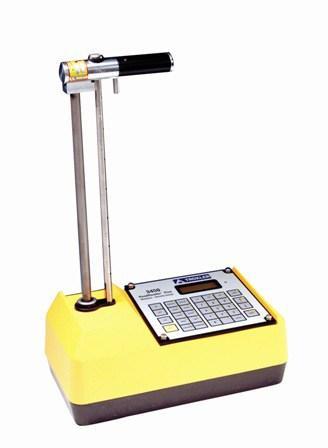RPS Training Courses (Who attends?) – Part 2 – Quality Assurance (QA)
Published: Nov 13, 2018
[Update September 2023 - these blog posts are a few years old now, but still provide useful content regarding the types of delegates we have on our RPS training courses. If you work in the quality assurance sector then please read on, and then consider our online RPS training course].
In the second part of this Radiation Protection Supervisor (RPS) training series, we turn to a second set of delegates who work with ionising radiation sources in the quality assurance (QA) sector. The QA sector is quite wide ranging but is generally looking for defects or is being used to assess the quality of an item in terms of surface chemistry, coating thickness, elemental analysis, absence of physical contaminants and similar. Whilst defect analysis is similar to industrial radiography, industrial radiography as defined in the Ionising Radiations Regulations 2017 (IRR17), is a separate class of work. If a person can have physical access to the Controlled Area (either an area of premises or site, or shielded enclosure) then its industrial radiography. If defects are surveyed using a small x-ray cabinet that cannot be physically entered, it not industrial radiography.
A good RPS understands the type of ionising radiation sources being used
In QA related work it is important that the RPS understands the nature of the source of ionising radiation being used. Often x-rays systems will be side by side with other analytical equipment in a laboratory. Without a well-trained RPS many staff in these areas might wrongly believe the x-ray unit is the most hazardous object in the room. Generally, the opposite is true and a well-trained RPS will being able to explain "what the x-ray system is NOT capable of doing" (this is considered during RPS training). Furthermore, spending some time comparing radiation risks against other more conventional risks in the workplace is useful. A good RPS can reassure the workforce and enable them to concentrate on the dominant risks in their area (e.g. slips, trips, falls etc) - i.e. in many cases not radiation related.
Ionising radiation sources in QA are diverse
QA processes using ionising radiation will either be in the form of gauge (e.g. level gauge, thickness gauge, density gauge etc), or utilise a type of x-ray cabinet (similar in principle to an airport security machine). The use of gauges, often denoted Nuclear Gauges, is closely related to process control systems where continuous monitoring is required (e.g. flow of oil / water mixture in a pipe / depth of beer in drinks cans etc). These often provide feedback loops so that adjustments can be made in real time. The use of x-ray system cabinets will either be continuous (e.g. a conveyor moving product through an x-ray unit), or by a batch-process (e.g. screening a single component in an x-ray inspection cabinet).

Nuclear density gauge (using radioactive Cs-137 and Am-241)
Exceptions are as important as the 'rules'
For any of the above processes the choice of source (x-ray / sealed radioactive source) will be governed by the nature of the measurement and the properties of the material being tested. High density materials (metal, concrete) will generally require higher energy gamma sources (e.g. Ir-192, Co-60 etc) or high kV x-ray systems (e.g. 150 kV and above). There are exceptions to this, for example XRF (X Ray fluorescence) can be used to analyse metals for their elemental composition and the x-ray source is generally < 50 kV as only surface analysis is required (no penetration is required or desirable).
Know the extent of Local Rules and the role of the RPS
QA delegates learn that where there are designated areas (Controlled or Supervised) then Local Rules and Radiation Protection Supervisors are mandatory. However, some QA systems (e.g. completely shielded x-ray screening cabinets) do not have designated areas (since the extremities or body cannot enter the screening area when ionising radiation is present due to physical restriction). In these cases, the RPS will learn that Local Rules and their own appointment are still best practice and are comparable to procedures and competent persons required by The Management of Health and Safety at Work Regulations 1999. The rules and their role may however be proportional to the risks and therefore perhaps not as detailed as formally required by Regulation 18 of IRR17.
Ionactive offer a range of RPS training course options. How about trying our 24/7 on demand online RPS training course.
